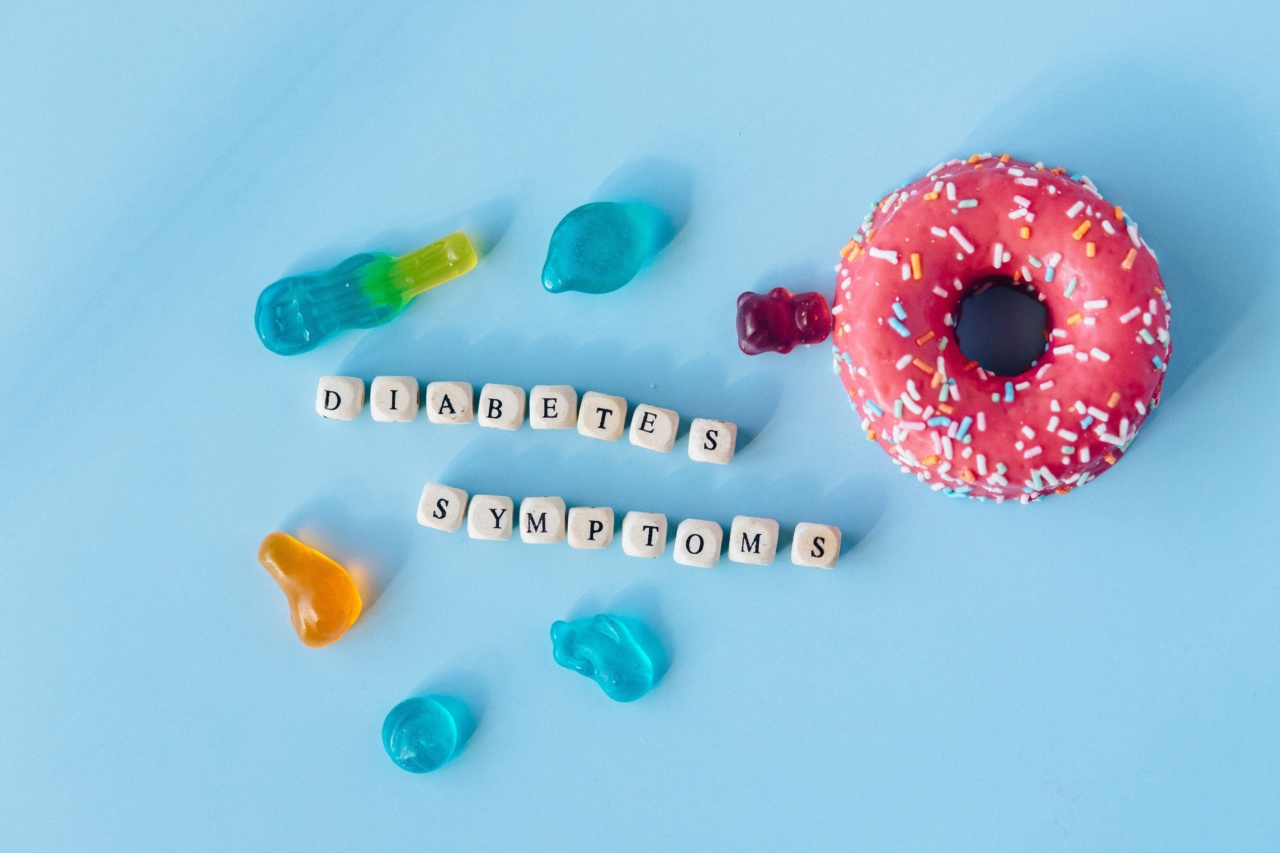Diabetes is a chronic disease that affects millions of people worldwide. It is important to recognize the early symptoms of diabetes to prevent complications and ensure prompt treatment.
Diabetes is a condition in which the body cannot properly process glucose, leading to high levels of sugar in the blood. There are two types of diabetes: type 1 diabetes and type 2 diabetes.
Type 1 Diabetes
Type 1 diabetes is an autoimmune disease that occurs when the body’s immune system attacks the cells in the pancreas that produce insulin. Insulin is a hormone that regulates the amount of glucose in the blood.
Without insulin, blood sugar levels become dangerously high, leading to serious complications.
Type 2 Diabetes
Type 2 diabetes is the most common form of diabetes. It occurs when the body becomes resistant to insulin or does not produce enough insulin to regulate blood sugar levels.
Type 2 diabetes can be managed with lifestyle changes, such as diet and exercise, or with medication.
Early Symptoms of Diabetes
The early symptoms of both types of diabetes can be similar. They include:.
1. Frequent Urination
High levels of sugar in the blood can cause the kidneys to work harder to filter out the excess glucose. This can result in frequent urination, particularly at night.
2. Increased Thirst
Frequent urination can lead to dehydration, which can cause increased thirst.
3. Extreme Hunger
When the body cannot properly process glucose, it cannot use it for energy. This can cause extreme hunger, even after eating.
4. Fatigue
Without enough glucose to fuel the body, people with diabetes can feel tired and sluggish.
5. Blurred Vision
High levels of sugar in the blood can cause the lens of the eye to swell, resulting in blurred vision.
6. Slow Healing
Diabetes can affect the body’s ability to heal wounds and infections. This can lead to slow healing and an increased risk of infections.
7. Numbness and Tingling
High blood sugar levels can damage nerves, leading to numbness and tingling in the hands and feet.
8. Dry Skin
High blood sugar levels can cause the skin to become dry and itchy.
9. Recurring Infections
Diabetes can weaken the immune system, making it more difficult for the body to fight infections. People with diabetes are more prone to recurring infections, such as urinary tract infections and yeast infections.
10. Weight Loss
People with type 1 diabetes may experience unintentional weight loss as their body breaks down fat and muscle for energy because it cannot use glucose.
If you experience any of these symptoms, it is important to see your doctor for a diabetes test. Early diagnosis and treatment can prevent complications and improve quality of life.




























